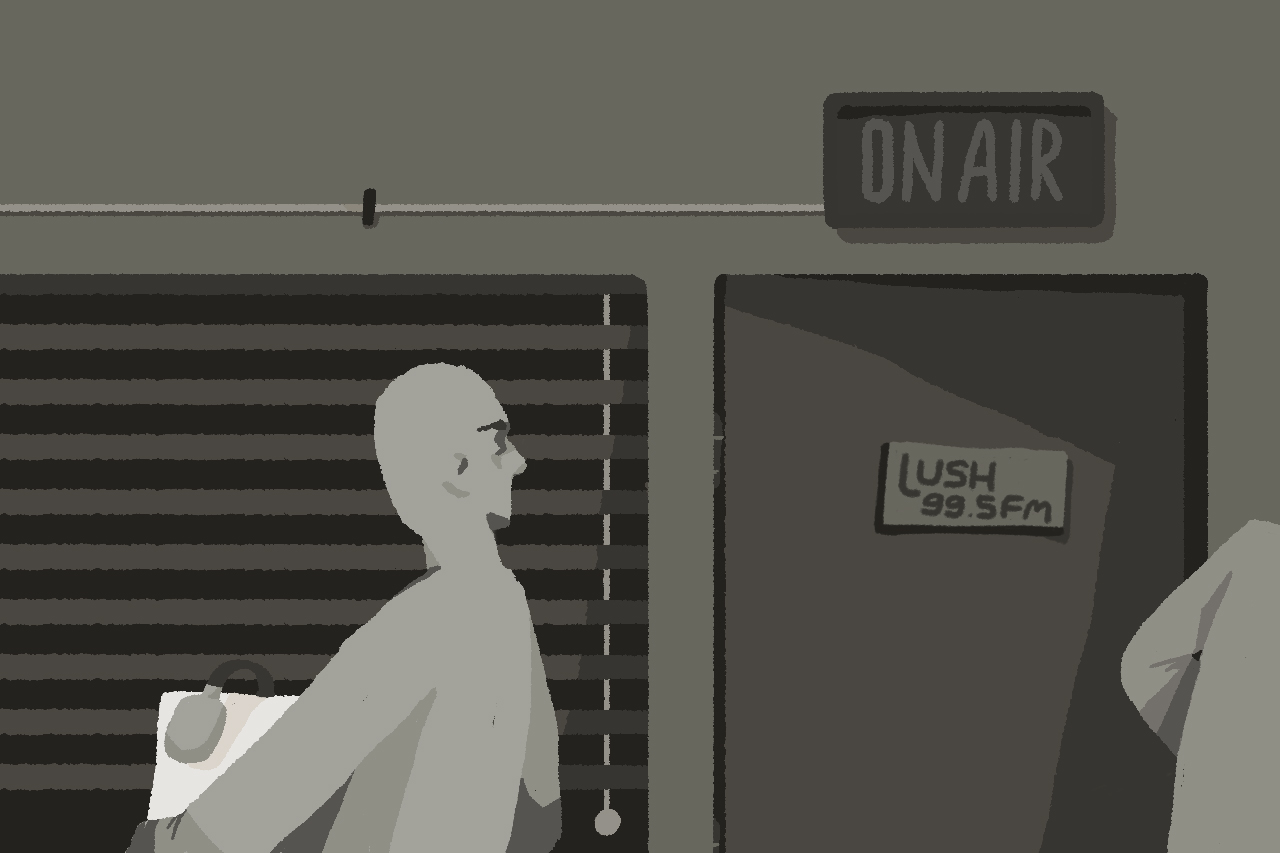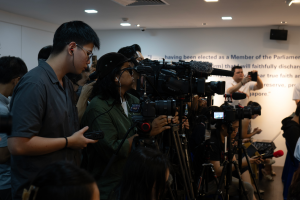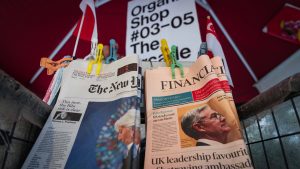Georgina Chang, the former head of Lush 99.5fm, does not hold back when I catch her at the radio station’s farewell party a week ago on September 1st.
“It’s kind of like when a guy you’ve been dating says he wants to break up with you and you don’t quite believe it, and it hasn’t sunk in until a month later when you realise you haven’t had sex for a month,” she says.
The end of Lush, a brand which has very much been Georgina’s baby since she took over the helm at the studio in 2009, has clearly been hard to swallow.
Touted as Singapore’s indie radio station, Lush 99.5fm had been the de facto frequency to tune in to for a non-mainstream music fix. The station started out in 2004 playing electronic, house and chill-out music, already out of the norm for a broadcaster known for its offerings of contemporary pop and oldies on its flagship English radio stations.
It was only in 2009 that indie music began to hit the airwaves, before gradually becoming one of the station’s defining flavours.
“Back then, we were ahead of the curve. We played Adele and Ed Sheeran way before anyone else did,” says Georgina. “I pushed for the indie programming, and I was trying to reach out to the people who make up the numbers. People who don’t know the song title but don’t care because they just like the vibes of the music that were playing.”
But pandering to only a niche market while concurrently trying to spark interest from the mainstream crowd was simply too idealistic an ambition for Lush. While these intentions were noble, they would also eventually shape the station’s demise.
In Singapore at least, indie was never going to be a commercial success. Lush was the tragic victim of not just a vicious corporate machine, but a system that is archaic in today’s modern society.
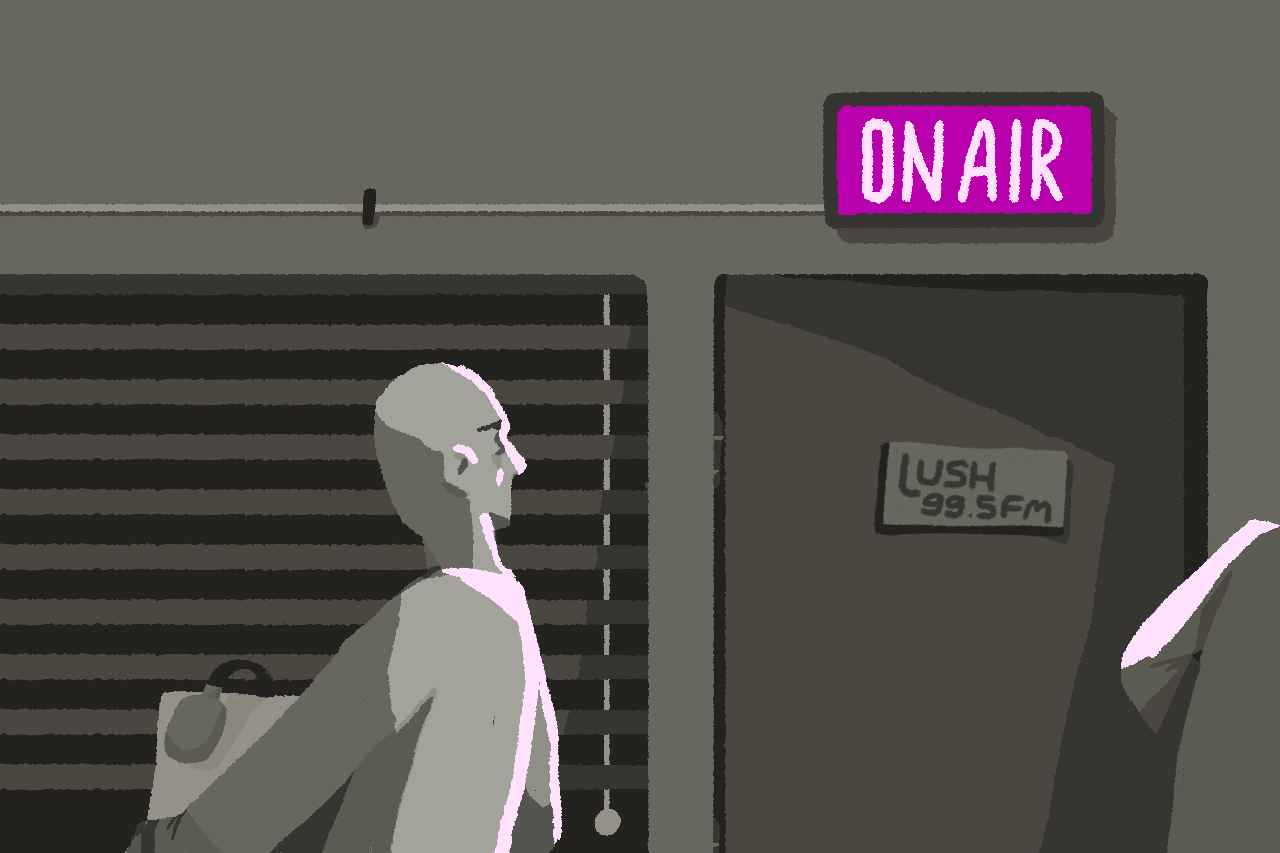
Statistics from the most recent Nielsen Radio Survey are just as murky, since they are not publicly released. Thus far, the two main broadcasters – Mediacorp and SPH – have framed figures to their advantage and the public’s confusion. CLASS 95, with a listenership of 15.9 per cent, and Kiss 92, with a listenership of 661,000, are claimed by their respective owners to be the top English radio station in the country this year.
The problem of low listenership is deja vu for Lush. In 2015, the studio found itself in a similar predicament when the Media Development Authority (MDA) had to assess its broadcast license due to poor numbers in that year’s Nielsen survey – recorded at 38,000 a week. That sparked the #iListentoLush campaign, which included a survey to prove to the authorities that the station was worth keeping.
“One of the survey questions was ‘If Lush ceases to exist, would you still listen to radio?’ and close to 70 per cent of respondents said ‘no’. MDA was surprised by those results, and they understood that we were reaching out to the sigma of the population. That was reason enough for them to let us stay on air,” Georgina recalls.
Considering Lush’s near-death episode in 2015 and the pouring in of support from listeners since Mediacorp made the executive decision in July, there seems to be a huge disconnect between what the Nielsen survey results portray and the reality on the ground.
Based on personal experience, these surveys are often conducted in high traffic places like neighbourhood malls. Random members of the public are asked to fill out survey forms in exchange for things like NTUC vouchers. This is a representative sample which only captures a sample size of the mass population, and thus works mainly for mainstream radio stations.
In Lush’s case, the survey did not capture “high-income earners working in a variety of jobs” or even creative professionals. I, as a fan of Lush, was never given the opportunity to have my voice heard. After all, the Lush crowd probably isn’t the type of audience that does surveys for grocery coupons.
The odds were thus always going to be stacked against Lush as long as the same outdated metric was used to measure it against the mainstream stations.
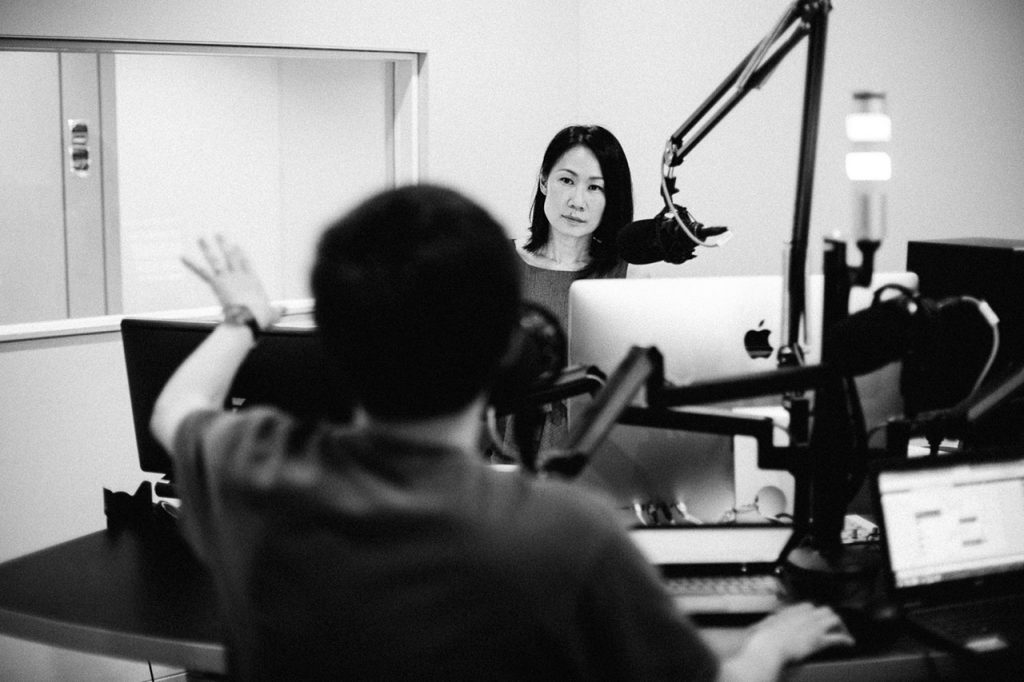
“What the current metrics do is really only measure reach not engagement, and they are also very limited to those people listening within the broadcast footprint of the station. What is being ignored is the plethora of other metrics like Facebook, Twitter and Instagram that can be used to collect true audience reach and more important engagement.
“The problem is that there is no standardisation of measures across metrics and this leads to alternative data being ignored or discredited.”
Dr Freeman, who is now a communications professor at the American University in Dubai, adds: “Low audience isn’t always a bad thing, if the smaller audience has a higher income and education. Many stations around the world have learned to prefer that kind of (often more loyal) audience than strictly look at the numbers. Put it this way, if you have a store do you want 1,000 customers with a dollar to spend each, or 100 with $1,000?”
But according to Georgina, even with Lush’s supposedly more sophisticated group of listeners, most advertisers were unwilling to give the station a shot. “I was told so many times, ‘I need to hit my return of investment, so if I put $10,000 in this campaign, I need to reach as many people as possible.’ We all know now it’s not about reach, it’s not about having 10 million ‘likes’. It’s about the engagement and quality of the audience. But most advertisers did not get that.”
If a station’s success is just about mass audience numbers, how does a station like Symphony 92.4, whose classical music is markedly niched in its own right, still continue to operate but not Lush?
The truth is that it is plain cultural bias.
Many still perceive classical music as “high-culture, high-art”, a perception which still eludes indie music. Symphony’s listeners comprise mainly white-collar high income earners and members of Singapore’s elite. Coupled with the backing of the National Arts Council and strong ties to the Singapore Symphony Orchestra, the classical music radio station was put on more solid financial footing than Lush did.
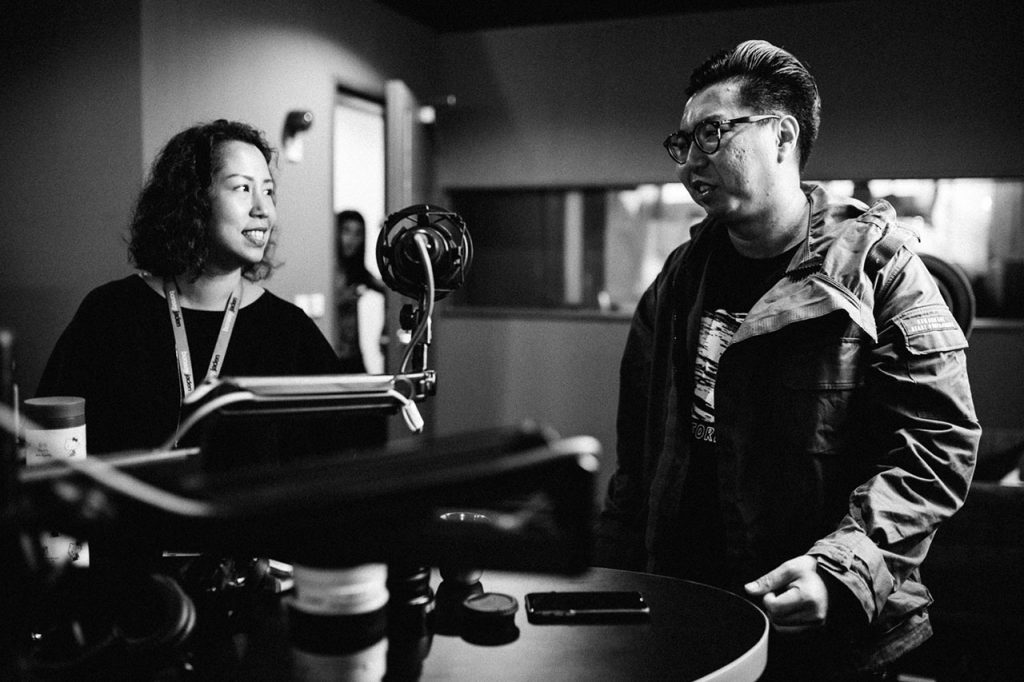
“It’s very hard to sell all 13 radio stations when you are under pressure to post numbers. So you want to sell the biggest and easiest product – your star product,” adds Georgina. “The smaller, niched products take longer and bring in less revenue. So it was harder to close advertising deals for Lush.”
The lack of product differentiation just seems absurd. It’s basically no different from trying to sell a Ferrari to customers who just want a six-seater to ferry the kids to tuition and swimming classes.
This is where things also begin to get even more baffling. Following a restructuring initiative at Mediacorp, all the radio stations were grouped into three business development categories. 987fm went to the youth group, while CLASS 95 and Gold 90.5 were grouped together with TV channels Ch5 and Ch8.
“What about Lush?” you might ask.
It was lumped together with the print magazine division.
If you have been following the news, you would know that the future of print media, particularly at Mediacorp, is not bright at all.
Grouping Lush with print magazines was at best, a clumsy attempt to turn it into a lifestyle brand. And at worst, a conscious decision to slowly suffocate the station. Either way, the writing was probably on the wall at this point, and it is not surprising that they eventually pulled the plug.
Concurrently, it’s not just the indie and electronic music lovers who have been deprived of a station that understands their tastes and preferences. Local musicians have also lost a platform that increases their visibility in a music scene that is dominated by Western pop music influences.
Over the last couple of years, Lush increased the prominence of local musicians in its programming. In addition to playing local music, the station regularly invited musicians to the studio to perform live acts on air, and not just indie artists but electronic music DJs as well.
At the same time, killing Lush does not signify the end of local music. Musicians may be forced to revert to shopping their trade at public spaces and on social media, but opportunities are still available. The greater consequence is perhaps that without a national broadcaster’s support, lesser-known artists risk being drowned out by the more established names, such as The Sam Willows and Gentle Bones types. It will be a “more difficult hill to climb”, as Dr Freeman puts it.
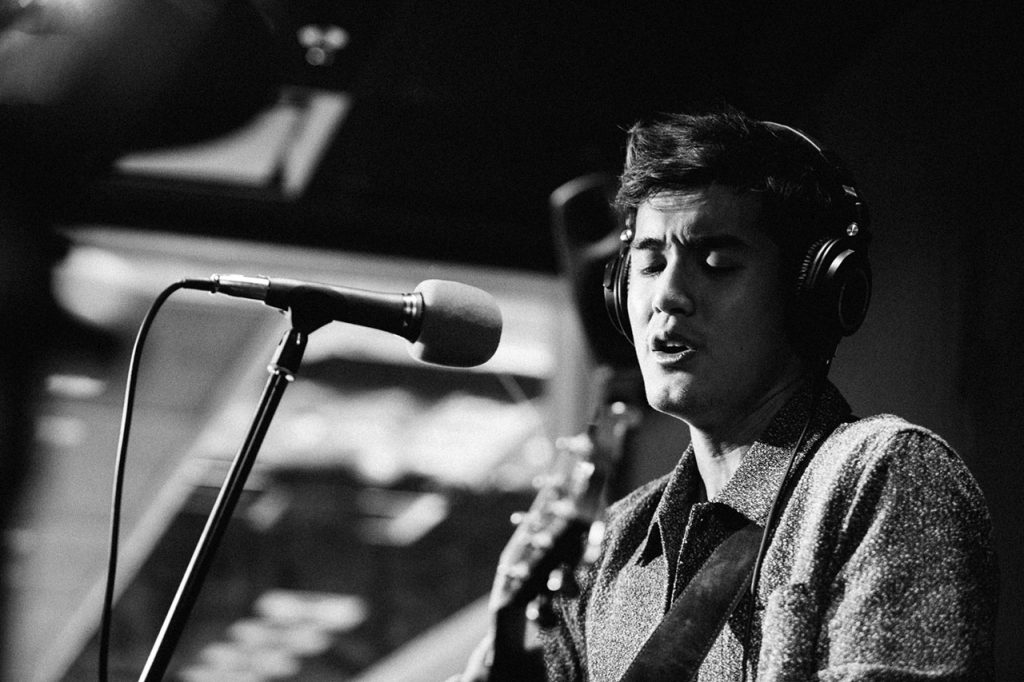
It would also be naïve to believe that local indie music would become a full-fledged programme on its own on 938 and 987, which have long been established as news and pop music stations respectively. Doing so could disrupt the identity of the stations and “alienate their core audience”, says Colin Lim, frontman of local band King Kong Jane.
“Lush played our song ‘Waiting for Friday’ on a regular basis over a period of at least two years, and this was not something that other local radio stations were willing to do.”
Inserting local indie music in the programming of radio stations with completely different tunes sounds haphazard, and reverts to the pre-Lush era of radio programming that lacks a vision. In that regard Mediacorp’s radio division has gone backwards. This deprives listeners of the freedom of choice, says Dr Liew Khai Khun, a professor at WKWSCI who specialises in radio communication and music culture in Southeast Asia.
And let’s not forget that the other ingredient of Lush’s programming – the electronic music DJs – will be excluded from Mediacorp’s plans.
“It certainly is a huge blow, even on a psychological level, especially for musicians who deserve to be heard on a national platform and are still in the infancy of their growth,” says Debbie Chia, a DJ who runs record label Midnight Shift and was a regular guest DJ on Lush.
“It’s also sad that there is simply no room for the alternative or niche in the view of economics. Makes you wonder what a solely mainstream diet will do to a populace over time. Surely we are not all cut of the same one cloth?”
Thus far, Spotify’s emergence as the music platform of choice has been nothing more than a cheap excuse for rationalising the shutdown of a dedicated radio station. While online playlists may gratify listeners’ cravings, they do not always engage listeners in a dynamic fashion that radio stations are known for.
In particular, Lush had a spunk and specific tone of voice and visual style that came through in all the radio, video and social content it put out, says Tracy Phillips, Lush’s former curator and host.
But that is not to say that Lush was all progressive and without its flaws. Dr Liew points out that the main reason why Lush may have failed was because it had become too exclusive and radio-unfriendly. In pandering to its own community of listeners, it had alienated everyone else.
He acknowledges that the Lush crew were exemplary in their domain knowledge of indie music, differentiating themselves from the simple ‘jukebox’ role that other radio DJs play. But their efforts to be an informative and friendly whisper in the listener’s ear were curtailed by the inaccessible playlists and their own “atas” vibe that may have had less appeal to the average Singaporean.

Perhaps the country’s market—largely a duopoly between Mediacorp and SPH—needs to be shaken up in the same way that Netflix disrupted the traditional cable TV industry. Operating a radio station is ludicrously expensive, and high barriers to entry prevent an independent entity from making its mark.
Another alternative would be a publicly funded station with consistently solid backing; one not dependent on profit goals.
Yet this hasn’t worked in the past either. Passion FM, set up by the National Arts Council in 1997 to support local music, shut down in 2003 due to insufficient sponsorship and advertising revenue to cover operating costs.
Lush was born from Passion’s ashes. Ironically, privatisation also failed to keep the 99.5fm frequency alive.
It’s true that radio has always been termed the “dinosaur” of the technological age. But it is still surviving. In many countries, it continues to thrive.
In the case of Singapore, the problem stems from an outdated perception of radio and the role of the arts in the country.
If not fixed, this could become the meteor that sends Singapore’s radio industry into extinction. Simply put, it’s only a matter of time before one of the industry’s stalwarts, like Lush, sings its swan song.
And that was what happened on the stroke of midnight on 31 August. A stripped-down house remix of “Lies” by CHVRCHES that was playing on Lush faded out. But there was no next song in the playlist, and no radio advertisement.
It was just pure silence on the airwaves.
The vacuum lasted for a few seconds, and then the white noise took over.

